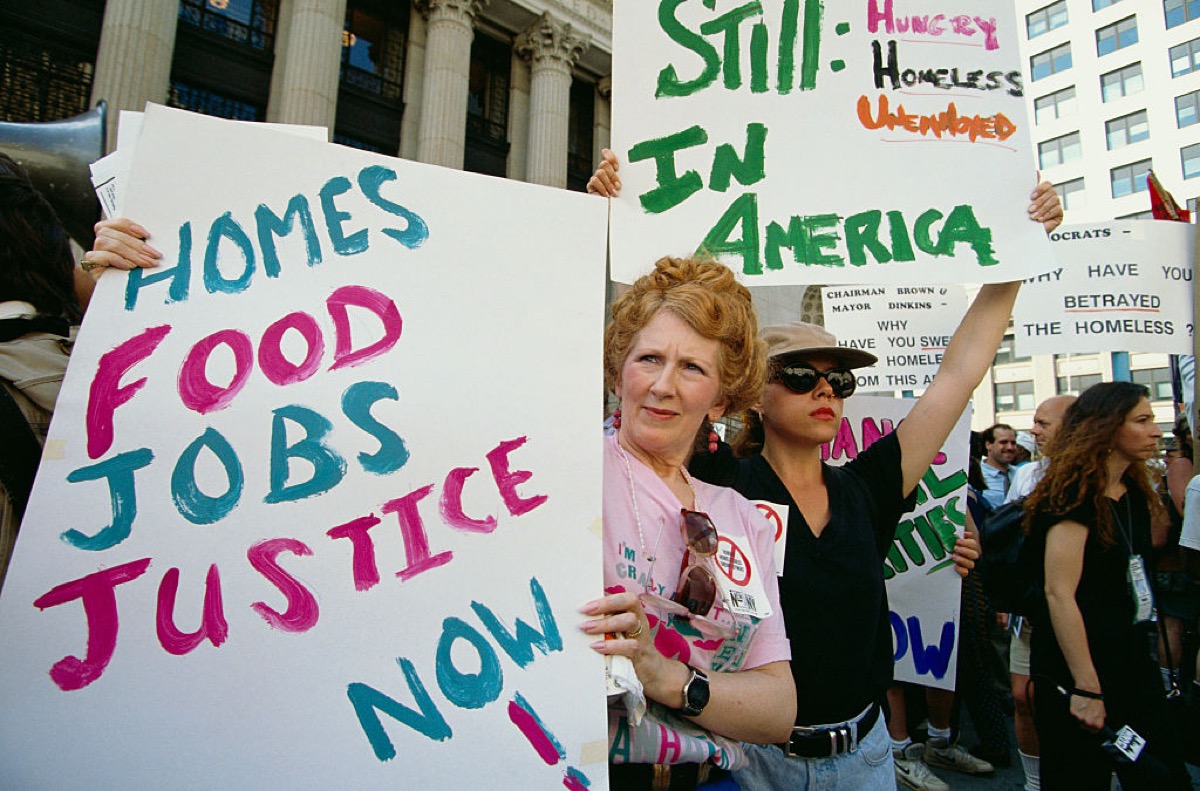Another Study Shows Direct Cash Assistance Immediately Alleviates Homelessness
There's a benefit to the individuals and to society.

Despite insulting common “wisdom” that giving cash to homeless people isn’t helpful, a study conducted by Foundations for Social Change, in partnership with the University of British Columbia, came to a different conclusion. They gave a lump sum of $7,500 (in Canadian dollars) to 50 homeless people from the Vancouver area who had become homeless within the past two years. There weren’t any restrictions. Instead, they told the recipients to do what they wanted with the money.
The 50 people who received money were analyzed in comparison to a control group, which consisted of 65 homeless people who didn’t receive cash. Both groups received access to assistance like workshops and life coaching. Separately, researchers conducted a survey where they asked 1,100 people to predict how those who received the $7,500 would spend their funds, with respondents echoing prejudice we’ve all heard before. They “predicted that recipients would spend 81 percent more on ‘temptation goods’ like alcohol, drugs, or tobacco if they were homeless than if they were not.” This means that people thought homeless people could not be trusted as much as when they were told recipients were not homeless. So the public mistrust would hinder possible cash-driven public policies.
Meanwhile, in reality, the study found that there wasn’t a substantial increase in “temptation” spending among cash recipients, but there was an increase in spending on things like food, clothes, and rent. These findings were according to self-reports, but the research team did followups. Over the course of a year, cash recipients were able to get into stable housing faster and were more able to achieve some form of financial stability. Another important note, according to Vox, is that other studies have consistently shown that cash payments do not increase “temptation” spending; they either decrease it or do not impact it. It seems that it’s everyone else who has a problem with self-righteous preconceptions, not homeless people having a problem with “temptation” spending.
So how can we change that perception? Narratives, narratives, narratives. Almost every issue in public policy is connected so much to how it is messaged to the public. Putting things like the results of this study into the public debate via the news, social media, political gatherings, and more will help show people that cash payments can be beneficial. One key finding that could help change public perception is how it impacts society economically. Some of us still like hard facts and numbers, and cash payments seemingly have a benefit to communities monetarily! People with harmful misconceptions often think they’re just making sound financial decisions, but they’re often hurting everyone, including themselves, with their selfishness.
Foundations for Social Change were able to show that their cash payments in Vancouver saved the shelter system $8,277 per person over the course of a year. The total savings from this experience was $413,850. Since that number is higher than the number of the payments, they end up paying for themselves. These are the kind of cost-benefit analyses that those in power should really consider when making public policy. It doesn’t work for society to just continue to belittle homeless populations despite what research says. Hopefully more studies like this will be conducted and we can start to see crucial changes.
(featured image: Viviane Moos/CORBIS/Corbis via Getty Images)
Have a tip we should know? tips@themarysue.com